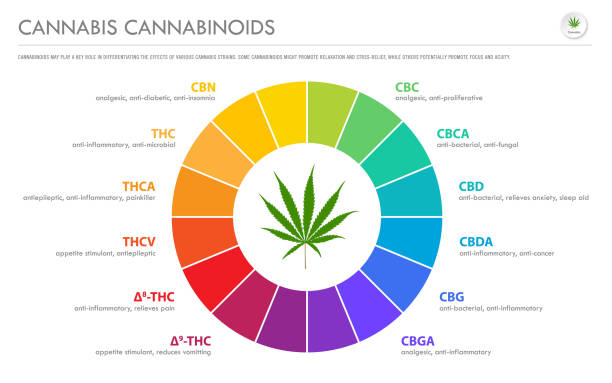What Are Cannabinoids and Why Are They Important?
With the legalization of medical marijuana in Canada, more patients are turning to cannabis as a natural way to treat a wide range of physical and mental health conditions. At the heart of its healing potential are cannabinoids—the active compounds in the cannabis plant that interact with your body’s endocannabinoid system (ECS).
THC and CBD: The Two Most Well-Known Cannabinoids
The cannabis plant contains over 144 different cannabinoids, but two of the most popular are THC (tetrahydrocannabinol) and CBD (cannabidiol).
THC (Tetrahydrocannabinol)
- Psychoactive: Yes
- Common Uses: Chronic pain, muscle spasms, nausea, appetite stimulation
- How It Works: Binds to CB1 receptors in the brain, producing a “high”
CBD (Cannabidiol)
- Psychoactive: No
- Common Uses: Anxiety, inflammation, seizures, PTSD
- How It Works: Modulates ECS without producing intoxication, often working synergistically with THC
Other Emerging Cannabinoids to Watch
Beyond THC and CBD, researchers are uncovering the benefits of minor cannabinoids, including:
CBG (Cannabigerol)
- Anti-inflammatory, antibacterial, and potential neuroprotectant
CBN (Cannabinol)
- Sedative properties, useful for sleep disorders
THCV (Tetrahydrocannabivarin)
- May suppress appetite and support weight loss
These lesser-known compounds are showing exciting medical potential in early research and may soon be part of everyday cannabis treatments.
How Are Cannabinoids Made and Transformed?
Cannabinoids don’t all start as what we consume. They evolve through a natural chemical chain reaction:
- CBGA → The “mother cannabinoid”
- CBGA converts into THCA, CBDA, or CBCA
- When heated (like when you smoke or vape), THCA becomes THC
This transformation alters their psychoactive strength and medicinal effects. Even slight chemical changes between cannabinoids can drastically affect how they work in your body.
How Many Cannabinoids Exist?
There are over 144 known cannabinoids, and counting. Some exist naturally in the cannabis plant; others form during extraction, heating, or even over time as cannabis degrades. Every cannabinoid interacts with the ECS differently, leading to unique therapeutic outcomes.
Medical Benefits Backed by Research
Scientific studies, although still developing, show cannabinoids may help treat:
- Cancer-related symptoms
- Multiple sclerosis
- Epilepsy and seizures
- Chronic pain and arthritis
- Post-traumatic stress disorder (PTSD)
- Glaucoma
- Inflammatory conditions
For example:
- CBD has shown promise in reducing PTSD symptoms.
- THC may alleviate intraocular pressure in glaucoma.
Where to Get Medical Marijuana in Windsor
With cannabis now legal in Canada, patients in Windsor and surrounding areas can conveniently access cannabinoids at:
Grassroots Cannabis Store
📍 398 University Avenue West, Windsor, Ontario
Whether you’re looking for high-THC flower, balanced oils, or minor cannabinoids like CBG and CBN, Grassroots has you covered. Our team can help you find the right product for your health and wellness goals.
Conclusion: The Future of Cannabinoid-Based Medicine is Bright
Cannabinoids are changing the future of medicine in Canada. With over 144 active compounds and growing research, the potential of medical marijuana is truly just beginning to unfold. Whether you’re new to cannabis or a seasoned user, Grassroots Cannabis Store in Windsor is your trusted source for quality, education, and care.
Cannabinoids 101: A List of Cannabinoids and Their Effects (cannigma.com)
Cannabinoids: Benefits, Side Effects, Dosage, and Interactions (verywellhealth.com)
